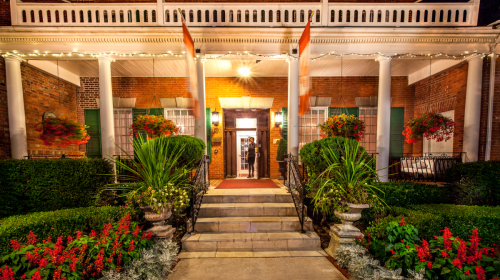



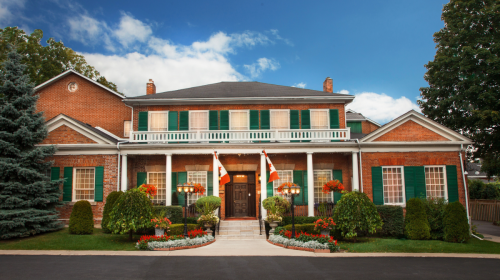




Canadian Centre for Addictions
Verified Center
This provider's information has been quality-checked by Recovery.com's Research Team for accuracy and completeness, including center verification through appropriate third-party organizations.
Treatment Focus
This center treats substance use disorders and co-occurring mental health conditions. Your treatment plan addresses each condition at once with personalized, compassionate care for comprehensive healing.
Primary Level of Care
Offering intensive care with 24/7 monitoring, residential treatment is typically 30 days and can cover multiple levels of care. Length can range from 14 to 90 days typically.
Treatment Focus
This center treats substance use disorders and co-occurring mental health conditions. Your treatment plan addresses each condition at once with personalized, compassionate care for comprehensive healing.
Primary Level of Care
Offering intensive care with 24/7 monitoring, residential treatment is typically 30 days and can cover multiple levels of care. Length can range from 14 to 90 days typically.
Private Pay
You pay directly for treatment out of pocket. This approach can offer enhanced privacy and flexibility, without involving insurance. Exact costs vary based on program and length of stay. Contact the center for specific details.
Canadian Centre for Addictions
Canadian Centre for Addictions
About Canadian Centre for Addictions
The Canadian Centre for Addictions believes 5-star care helps their clients learn how to lead 5-star quality lives, year after year. They offer sophisticated treatment for drug and alcohol addiction, as well as the underlying issues that led to addiction in the first place. In addition to offering detox and inpatient treatment in luxurious, historical properties, they also provide outpatient programs. Committed to setting a higher standard, CCFA uses the Rehabilitation Wellness Inventory to measure clients’ improvements, and currently has a 95% success rate.
See Measurable Results from Treatment
Working one-on-one with each client, the Canadian Centre for Addictions explores treatment modalities that best resonate with each client to develop healthier coping mechanisms for common mental health hurdles like anxiety and depression. Their comprehensive approach includes evidence-based individual, group, and family therapy sessions, as well as holistic wellness practices such as meditation, nutrition, and physical activity.
Live Each Day with Purpose and Focus
Clients at the Canadian Centre for Addictions follow a structured schedule that supports healing and growth. Mornings begin with an affirmations group and journaling with primary counsellors. Clients attend multiple daily therapy sessions, including individual, group, and family therapy. Workshops teach life skills and relapse prevention strategies, equipping clients with tools for long-term recovery. Clients can also choose to attend either 12-Step or non-12-Step meetings—empowering them to find what works best for their personal recovery.
Stay Committed to Sobriety with Ongoing Support
The Canadian Centre for Addictions offers lifetime aftercare to all program graduates, ensuring ongoing support anywhere in North America. Recovery is a lifelong journey, and clients can always rely on CCFA for guidance, connection, and encouragement beyond their time in treatment.
Relax in Historic Charm with Modern Amenities
CCFA’s two locations near Toronto offer peaceful accommodations with private and shared rooms, luxurious amenities, and serene surroundings. Hillcrest Mansion, an 1874 Victorian estate, features fireplaces, Jacuzzi tubs, private decks, a full gym, a dry sauna, a games room, a swimming pool, and hiking trails, while Woodlawn Inn, a former hotel near Cobourg Beach, offers large en-suite rooms, a steam room, a gym, and beach outings. Both locations provide professionally prepared gourmet meals, beautiful gardens, and a supportive community environment that fosters connection and recovery.
The Canadian Centre For Addictions accepts insurance payments from various insurance providers such as Sunlife, Greenshield and Manulife Insurance and others. They can speak to insurance providers or HR representatives to help with pre-approval.
Highlights from the Center
Highlights
These highlights are provided by and paid for by the center.
1-on-1 Counseling
On-site Medical Detox
Tech Friendly
Executive Treatment
Center Overview
Treatment Focus
This center treats substance use disorders and co-occurring mental health conditions. Your treatment plan addresses each condition at once with personalized, compassionate care for comprehensive healing.

Canadian Centre for Addictions
Pricing and Program Length
Estimated Center Costs
The cost listed here ($23,500), is an estimate of program cost. Center price can vary based on program and length of stay. Contact the center for more information. Recovery.com strives for price transparency so you can make an informed decision.




Recovery.com Verified Listing
Recovery.com verified that the name, location, contact information and license to operate for this treatment provider are valid and up-to-date.

Accreditation Canada Accredited

Licensed

NAATP Member
Recovery.com is an independent, third-party mental health resource. Verification does not imply endorsement and does not guarantee the quality of treatment services.
Meet Your Care Team

Dr. Ron Phillipson
BSc, MD, CCFP, FASM

Dr. Jonathan Siegel
Registered Psychologist
BSc, M.Ed, Ed.D

Brooke Sturzenegger
Registered Nurse
BScN, RN

Dr. Leonard Bienenstock
Addictions Physician
M.D. CCFP

Megan Thompson
Certified Addictions Counsellor
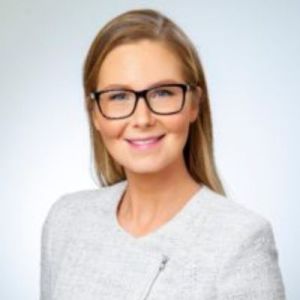
Erin Kernohan
Programs Manager & Certified Addictions Counsellor

Dr. Greg Carfagnini
Addictions Physician & Doctor
MD CCFP(EM)
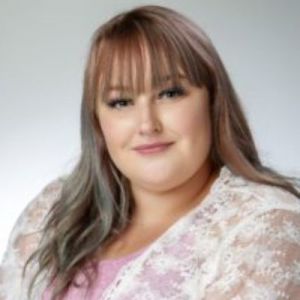
Emma Pilgrim
Aftercare Services Coordinator

Jeff Cameron
Shift Manager & Certified Addictions Counsellor

Nardia Arayoe
Certified Addictions Counsellor
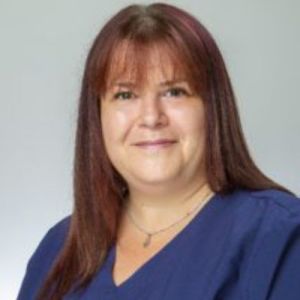
Carrie Smith
Withdrawal Management Nurse
RPN

Roger Cowley
Chef

Maria Digirolamo
Administrator
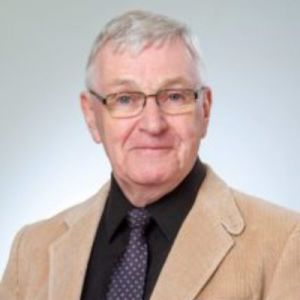
Ken Ross
Residential Care Worker

Jim McKenny
Recovery Coach Former NHL Player (Toronto Maple Leafs)
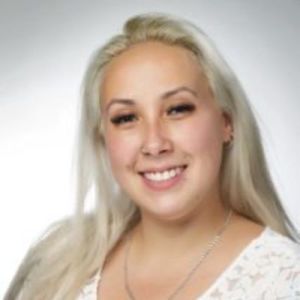
Tiffany Ngai
Addictions Primary Counsellor

Ainsley McNaught
RP Qualifying
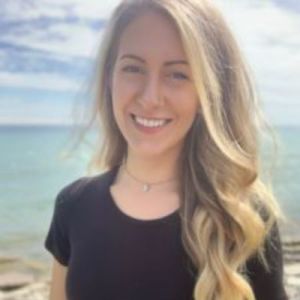
Jessica Padar
Addictions Counsellor Family Services Coordinator

Maria Telesca
Assistant to the Executive Director
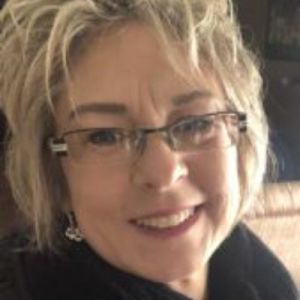
Kim Stocker
Residential Counselor
Your Care Options
Specializations
Detox
Detox fully and safely removes toxic substances from the body, allowing the next steps in treatment to begin with a clean slate.
Drug Addiction
Drug addiction is the excessive and repetitive use of substances, despite harmful consequences to a person's life, health, and relationships.
Executives
Executive treatment programs typically directly support the needs of people who manage businesses and may provide flexible schedules and office space to allow work during treatment.
Wellness
Wellness philosophies focus on the physical, mental, and spiritual wellness of each patient, helping them restore purpose with natural remedies.
Who We Treat
Older Adults
Addiction and mental health treatment caters to adults 55+ and the age-specific challenges that can come with recovery, wellness, and overall happiness.
Executives
Executive treatment programs typically directly support the needs of people who manage businesses and may provide flexible schedules and office space to allow work during treatment.
LGBTQ+
Addiction and mental illnesses in the LGBTQ+ community must be treated with an affirming, safe, and relevant approach, which many centers provide.
Men and Women
Men and women attend treatment for addiction in a co-ed setting, going to therapy groups together to share experiences, struggles, and successes.
Midlife Adults
For adults ages 40+, treatment shifts to focus on the unique challenges, blocks, and risk factors of their age group, and unites peers in a similar community.
Mild Disabilities
Adults with mild physical or intellectual disabilities receive treatment catered to their specific needs in a safe and clinically supportive environment.
Pregnant Women
Addiction and mental health treatment meets the clinical and psychological needs of pregnant women, ensuring they receive optimal care in all areas.
Treatment Services
Detox
Detox fully and safely removes toxic substances from the body, allowing the next steps in treatment to begin with a clean slate.
Intensive Family Program
Some rehabs offer intensive programs for loved ones. Group and individual therapy sessions help everyone heal, and improve family dynamics.
Intensive Outpatient Program
In an IOP, patients live at home or a sober living, but attend treatment typically 9-15 hours a week. Most programs include talk therapy, support groups, and other methods.
Private Therapy
This is an individual therapy that's often available at private therapy clinics. Clients may be able to choose a therapist who best fits their unique needs.
Outpatient
During outpatient rehab, patients attend a structured treatment program while continuing to live at home.
Residential
In a residential rehab program, patients live onsite, with access to daily treatment and 24-hour care. An average stay is 30-90 days.
Interventionists
Professionals who helps guide loved ones through an intervention to help someone overcome addiction or mental health issues. They may also help clients find treatment centers and navigate the recovery process.
Approaches
Evidence-Based
A combination of scientifically rooted therapies and treatments make up evidence-based care, defined by their measured and proven results.
Family Involvement
Providers involve family in the treatment of their loved one through family therapy, visits, or both–because addiction is a family disease.
Holistic
A non-medicinal, wellness-focused approach that aims to align the mind, body, and spirit for deep and lasting healing.
Individual Treatment
Individual care meets the needs of each patient, using personalized treatment to provide them the most relevant care and greatest chance of success.
Non 12 Step
Non-12-Step philosophies veer from the spiritual focus of the 12-Steps and instead treat the disease of addiction with holistic or secular modalities.
Personalized Treatment
The specific needs, histories, and conditions of individual patients receive personalized, highly relevant care throughout their recovery journey.
Twelve Step
Incorporating spirituality, community, and responsibility, 12-Step philosophies prioritize the guidance of a Higher Power and a continuation of 12-Step practices.
Wellness
Wellness philosophies focus on the physical, mental, and spiritual wellness of each patient, helping them restore purpose with natural remedies.
Therapies
1-on-1 Counseling
Patient and therapist meet 1-on-1 to work through difficult emotions and behavioral challenges in a personal, private setting.
Meditation & Mindfulness
A practiced state of mind that brings patients to the present. It allows them to become fully aware of themselves, their feelings, and the present moment.
Art Therapy
Visual art invites patients to examine the emotions within their work, focusing on the process of creativity and its gentle therapeutic power.
Family Therapy
Family therapy addresses group dynamics within a family system, with a focus on improving communication and interrupting unhealthy relationship patterns.
Life Skills
Teaching life skills like cooking, cleaning, clear communication, and even basic math provides a strong foundation for continued recovery.
Massage Therapy
Massage therapy relieves physical and emotional tension, reduces pain, promotes relaxation, and improves emotion regulation.
Medication-Assisted Treatment
Combined with behavioral therapy, prescribed medications can enhance treatment by relieving withdrawal symptoms and focus patients on their recovery.
Conditions We Treat
Schizophrenia
Schizophrenia is a serious mental health condition that causes hallucinations, delusions, and disordered thinking.
Personality Disorders
Personality disorders destabilize the way a person thinks, feels, and behaves. If untreated, they can undermine relationships and lead to severe distress.
ADHD, ADD
ADHD is a common mental health condition caused by dopamine imbalance. Common symptoms include inattention, hyperactivitiy, and impulsivity.
Anger
Although anger itself isn't a disorder, it can get out of hand. If this feeling interferes with your relationships and daily functioning, treatment can help.
Anxiety
Anxiety is a common mental health condition that can include excessive worry, panic attacks, physical tension, and increased blood pressure.
Bipolar
This mental health condition is characterized by extreme mood swings between depression, mania, and remission.
Burnout
Burnout entails mental and physical exhaustion, and leads to a severe lack of fulfillment. This condition is often caused by overwork.
Chronic Pain Management
Long-term physical pain can have an affect on mental health. Without support, it can also impact your daily life and even lead to addiction.
Depression
Symptoms of depression may include fatigue, a sense of numbness, and loss of interest in activities. This condition can range from mild to severe.
Substances We Treat
Alcohol
Using alcohol as a coping mechanism, or drinking excessively throughout the week, signals an alcohol use disorder.
Benzodiazepines
Benzodiazepines are prescribed to treat anxiety and sleep issues. They are highly habit forming, and their abuse can cause mood changes and poor judgement.
Co-Occurring Disorders
A person with multiple mental health diagnoses, such as addiction and depression, has co-occurring disorders also called dual diagnosis.
Cocaine
Cocaine is a stimulant with euphoric effects. Agitation, muscle ticks, psychosis, and heart issues are common symptoms of cocaine abuse.
Drug Addiction
Drug addiction is the excessive and repetitive use of substances, despite harmful consequences to a person's life, health, and relationships.
Ecstasy
Ecstasy is a stimulant that causes intense euphoria and heightened awareness. Abuse of this drug can trigger depression, insomnia, and memory problems.
Heroin
Heroin is a highly addictive and illegal opioid. It can cause insomnia, collapsed veins, heart issues, and additional mental health issues.
Psychedelics
Hallucinogenic drugs—like LSD—cause euphoria and increased sensory experiences. When abused, they can lead to depression and psychosis.
Languages
Aftercare
Care Designed for Your Needs
Personal Amenities
Amenities
Special Considerations
Executive Program
Addiction and mental health treatment for executives typically involves high discretion, greater technology access, and more private, 1-on-1 care.
Flexible technology policies
Centers with flexible technology policies allow professionals to stay in touch with work and give patients a greater sense of connection and normalcy.
Activities
Yoga
Yoga is both a physical and spiritual practice. It includes a flow of movement, breathing techniques, and meditation.
Off-Site Activities
Off-Site Amenities
Learn More About the Center
Proven Outcomes: 95% Success Rate
The Canadian Centre for Addictions (CCFA) reports over a 95% success rate among clients completing its programs. This impressive figure is backed by the Rehabilitation Wellness Inventory (RWI), a scientifically validated tool developed by Dr. Siegel and associates.
Private Rehab: Precision-Crafted Care That Works
Private treatment at CCFA ensures focused, evidence-based care delivered by experienced professionals. Fewer clients per staff member means more individualized therapy and superior outcomes—all supported by data and long-term success metrics.
The Importance of Wellness & Recreation in Addiction Rehab
Find out why wellness and recreation therapy can significantly aid addiction recovery.
Recovery’s Effect on Memory, Concentration & Decision Making
Read about CCFA’s partnership with the University of Toronto researching the effect of addiction recovery on cognitive ability.
Addiction & Canadian Life Expectancy
Discover how addiction affects life expectancy—and what can be done to change it.
Former Hockey Star Shares Personal Struggle with Addiction
Jim McKenny describes how he helps others struggling with addiction as a counsellor at CCFA.
What people are saying
Treatment
4.6
Accommodations
4.3
Food & Nutrition
4.7
Value
4.2
Pros
- Friendly & Competent Staff (51)
- Excellent & Effective Treatment Programming (49)
- Treated With Respect (47)
- Gourmet & Nutritious Food (46)
Cons
- Not Enough Time With Therapist (15)
- Poor Internet Connection (14)
- Poor Cell Service (7)
- Limited Time to Work (7)
Christine
Treatment in 2024 • (45 days) • Reviewed 10/16/24
Former Client
•Finance supervisor
•Ontario
Liam D
Treatment in 2024 • (45 days ) • Reviewed 06/01/24
Former Client
•Construction
•Kitchener-Waterloo
Brandon
Treatment in 2024 • (30 days) • Reviewed 05/07/24
Former Client
•Security Guard
•Oakville
Canadian Centre for Addictions
James
Treatment in 2025 • (45 days) • Reviewed 08/03/25
Former Client
•Regional Manager
Ekaterina V
Treatment in 2025 • (45 days) • Reviewed 05/03/25
Former Client
•Registered Health Professional
•Southern Ontario





